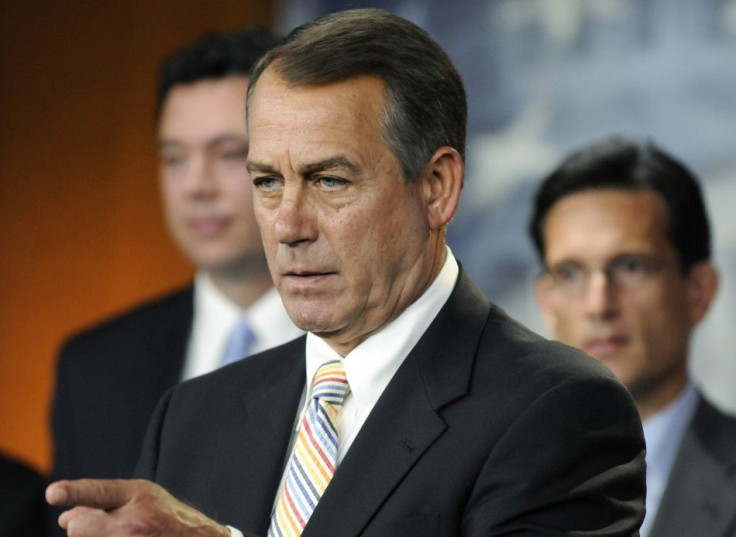Boehner to Super Committee: Cut Spending, Reform Social Security and Medicare, Don’t Raise Taxes
ANALYSIS

House Speaker John Boehner, R-Ohio, on Thursday rejected any increase in tax revenue and said Congress' bipartisan super committee, seeking $1.5 trillion in debt reduction, should concentrate entirely on cutting federal spending, including popular entitlement spending.
When it comes to producing savings to reach its $1.5 trillion deficit reduction target, the Joint Select Committee has only one option: spending cuts and entitlement reform, Boehner said, according to prepared remarks for a Thursday address to the Economic Club of Washington.
In his speech, Boehner said he was not opposed to responsible spending to repair an improve the nation's infrastructure, but that spending on highways/bridges should be accompanied by an expansion of American-made energy production.
Boehner also supports super committee efforts to lay the groundwork for tax reform.
The House Speaker also favors a balanced budget amendment sent to the states for ratification.
Boehner said he opposes extending the payroll tax reduction as well, arguing that businesses are not going to hire someone for a $4,000 tax rebate if government mandates impose long-term costs on them that significantly exceed the temporary credit.
Political/Public Policy Analysis: The ill-timed quality of Speaker Boehner's comments are only exceeded by their inaccuracy and counter-productiveness.
First, on incentives to hire: Costs are not preventing businesses from hiring: businesses are not hiring because there are few customers -- and in some cases no customers. The U.S. economy's problem is lack of aggregate demand, not supply or federal regulation.
Here's one example: Is a small business that knows it's going to gross $200,000 more in sales in a year not going to hire a $70,000 total-cost employee, including health care costs? Of course that business would. Now consider another scenario: that same small business with sales that are barely increasing in 2011. What amount of regulation reduction or universal health care plan removal would motivate that business to suddenly hire an employee in that poor sales environment and U.S. economy? None -- which refutes Boehner's thesis.
Second, the whole point of the bipartisan Congressional super committee is to let the committee do its work -- in other words, don't attempt to tarnish the committee in the eyes of the public with rhetorical comments -- and Boehner's rejecting any increase in tax revenue does just that: It's a verbal attempt to cut the super committee off at the knees, even before they've had one formal meeting.
Boehner appears to be perpetually in rhetoric mode, and his actions could prove to be self-defeating. If the super committee fails to agree on a package, or the full Congress fails to pass it, a trigger mechanism would enact $1.2 trillion in automatic spending cuts to serve as the second installment of deficit reduction measures.
And those $1.2 trillion is cuts would surely include cuts in Boehner's district -- cuts he doesn't like.
© Copyright IBTimes 2025. All rights reserved.




















